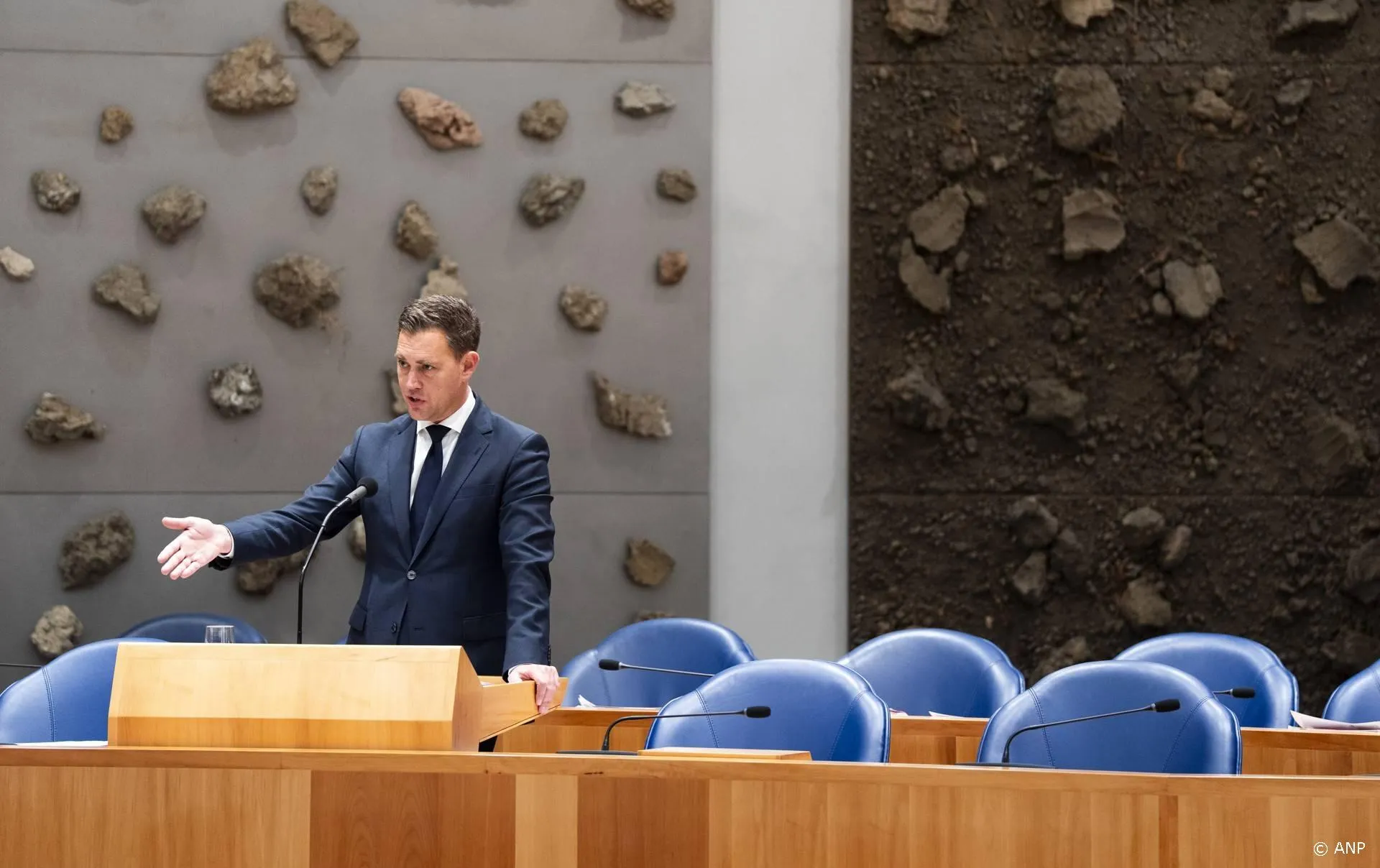Richard Muller van blaam gezuiverd
Eerder schreef ik over Richard Muller, leider van het BEST-project. BEST staat voor Berkeley Earth Surface Temperature Project. Richard Muller ging nog voordat de resultaten van het project aan 'peer review' waren onderworpen en de betrokken artikelen waren geaccepteerd voor publicatie door de 'Journal of Geophysical Research', ermee naar de media. Hij schreef een opinieartikel in de Wall Street Journal onder de titel: 'The Case Against Global-Warming Skepticism. There were good reasons for doubt, until now.' Maar naar nu bleek, was deze titel niet van hem, maar van de redactie van 'The Wallstreet Journal'.
In een interview voelde Rob Nikolewski hem nader aan de tand. Tom Nelson rapporteerde daarover het volgende op zijn blog.
Wednesday, November 02, 2011
Richard Muller interview, Part 1 - YouTube Interviewed by Rob Nikolewski of Capitol Report New Mexico, 10/31/11.
Richard Muller interview, Part 2 - YouTube Around the 2:45 mark of Part 1, referring to his recent Wall Street Journal article, Muller says "I never said you shouldn't be a skeptic. I never said that."
From his article: Without good answers to all these complaints, global-warming skepticism seems sensible. But now let me explain why you should not be a skeptic, at least not any longer.
Just before the 5-minute mark, Muller is asked if he's in the Al Gore camp. Muller: "Al Gore camp? That's ridiculous...what I point out is that most of what appears in An Inconvenient Truth is absolutely either wrong, exaggerated, or misleading."
At the 8:45 mark, he says scientists will "endorse Al Gore, even though they know what he's saying is exaggerated and misleading. He'll talk about polar bears dying even though we know they're not dying...".
In Part 2, he's asked about Eugene Robinson's Washington Post piece. [Q] It says "What Dr Muller says proves that the skeptics are wrong and they've got to get on the cap and trade train". Muller: "That's ridiculous. I mean, some people say I proved that there was no ClimateGate. No. NO! The ClimateGate thing was a scandal. It's terrible what they did. It's shameful the way they hid the data."
In de blogosfeer leidde het interview toch nog tot een aantal smalende commentaren op het optreden van Muller. Die lijken mij grosso modo misplaatst. Alhoewel er zeker nog wel enige tegenstrijdigheid in zijn uitlatingen valt te ontdekken, en ondanks het feit dat hij alle aanleiding heeft gegeven tot het onstaan van misverstanden, heeft Muller m.i. nu toch voldoende opheldering gegeven. Alle reden dus om op te houden met zeuren.
Lees, bekijk en luister verder hier.
Maar betekent dit ook dat daarmee de uitkomsten van het BEST-project dienen te worden omhelsd? Steve McIntyre heeft daar nogal wat kritiek op. Hij heeft er verschillende, zeer technische, 'postings' over geschreven. Ik beperk mij tot zijn commentaar op de mediaberichten als zou BEST de hockeystick hebben gevalideerd en en passant ook de hoofdrolspelers in het Climategate-schandaal hebben vrijgepleit van van manipulatie en wetenschappelijk onethisch gedrag.
McIntyre:
Finally, an editorial comment on attempts by commentators to frame BEST as a rebuttal of Climategate. Climategate is about the Hockey Stick, not instrumental temperatures. CRUTEM [de temperatuurreeks van de Climatic Research Unit] is only mentioned a couple of times in passing in the Climategate emails. Hide the decline referred to a deception by the Team regarding a proxy reconstruction, not temperature. In an early email, Briffa observed: I believe that the recent warmth was probably matched about 1000 years ago. Climategate is about Team efforts to suppress this thought, about Team efforts to promote undeserved certainty a point clearly made in CRUTape Letters by Mosher and Fuller.
The new temperature calculations from Berkeley, whatever their merit or lack of merit, shed no light on the proxy reconstructions and do not rebut the misconduct evidenced in the Climategate emails.
Opvallend is ook zijn positieve oordeel over Richard Muller.
McIntyre:
There's a good interview with Rich Muller here where Muller comes across as the straightforward person that I know. I might add that he did a really excellent and sane lecture (link) on policy implications a while ago that crosscuts most of the standard divides.
Zie verder hier.
Ook Fred Singer heeft zich nogmaals over BEST uitgelaten. Dit keer in 'The Wallstreet Journal' onder de titel: 'Why I Remain a Global-Warming Skeptic'.
Ik citeer:
Last month the Berkeley Earth Surface Temperature Project released the findings of its extensive study on global land temperatures over the past century. Physics professor Richard Muller, who led the study, heralded the findings with a number of controversial statements in the press, including an op-ed in this newspaper titled "The Case Against Global-Warming Skepticism." And yet Mr. Muller remains a true skeptica searcher for scientific truth. I congratulate Mr. Muller and his Berkeley Earth team for undertaking this difficult task in the realm of climate.
The Berkeley study reported a warming trend of about 1º Celsius since 1950, even greater than the warming reported by the U.N.'s Intergovernmental Panel on Climate Change (IPCC). I disagree with this result, which perhaps makes me a little more of a skeptic than Mr. Muller.
Mr. Muller has been brutally frank about the poor quality of the weather-station data, noting that 70% of U.S. stations involve uncertainties of between two and five degrees Celsius. One could interpret the Berkeley study's results as confirmation of earlier studies and of the IPCC's conclusions, despite the poor quality of the stations used. But perhaps the issue is that the Berkeley study and the ones that came before suffer from common errors. I suspect that the temperature records still are affected by the urban heat-island effecta term given to any local warming, whatever its causedespite efforts to correct for this. The urban heat-island effect could include heat produced not only in urban areas, but also due to changes in land use or poor station siting.
Singer verbindt daaraan een aantal suggesties voor verder onderzoek en vervolgt:
But the main reason that I am skeptical about the IPCC, and now the Berkeley, findings, is that they disagree with most every other data source I can find. I confine this critique to the period between 1978 and 1997, thereby avoiding the Super El Niño of 1998 that had nothing to do with greenhouse gases or other human influences. Contrary to both global-warming theory and climate models, data from weather satellites show no atmospheric temperature increase over this period, and neither do the entirely independent radiosondes carried in weather balloons.
The Berkeley study confined its findings to land temperatures as recorded by weather stations. Yet oceans cover 71% of the earth's surface, and the marine atmosphere shows no warming trend. The absence of warming is in accord with the theory that climate is heavily impacted by solar variability, and agrees with the solar data presented in a 2007 paper by Danish physicist Henrik Svensmark in the journal Proceedings of the Royal Society A.
Moreover, independent data using temperature proxiesvarious non-thermometer sources such as tree rings, ocean and lake sediments, ice cores, stalagmites, and so onalso support an absence of warming between 1978 and 1997. Coral data also show no pronounced warming trend of the sea surface, and there are good reasons to believe that reported sea-surface warming is an artifact of thermometer measurements.
The IPCC's 2007 Summary for Policy makers claims that "Most of the observed increase in global average [surface] temperatures since the mid-20th century is very likely [90-99% sure] due to the observed increase in anthropogenic greenhouse gas concentrations." While Mr. Muller now seems to agree that there has been such global average warming since the mid-20th century, he nonetheless ended his op-ed by disclaiming that he knows the cause of any temperature increase. Moreover, the Berkeley team's research paper comments: "The human component of global warming may be somewhat overestimated." I commend Mr. Muller and his team for their honesty and skepticism.
Lees verder hier.
Fred Singer is de 'aartsvader' van de internationale klimaatsceptici. Zijn inhoudelijke bijdragen aan het debat zijn altijd glashelder en bovendien voor een breed publiek toegankelijk (dat geldt helaas niet voor alle klimaatsceptici). Daarenboven munten zij uit in zakelijkheid en hoffelijkheid. Daaraan kan elke deelnemer aan de discussie een puntje zuigen.
Ga verder met lezen
Dit vind je misschien ook leuk
Laat mensen jouw mening weten


